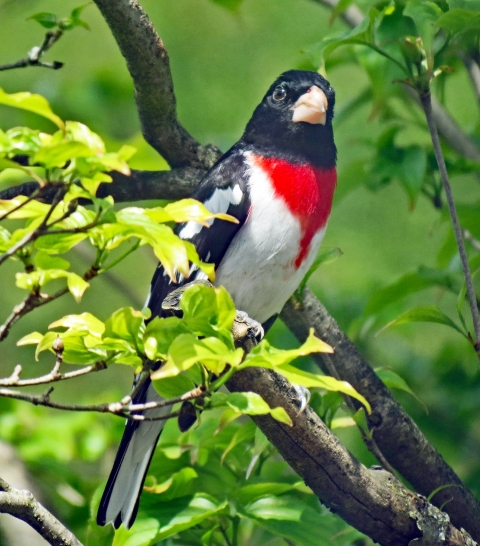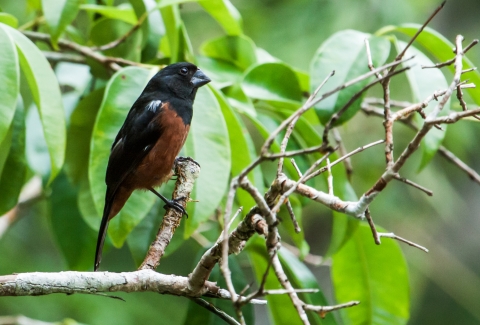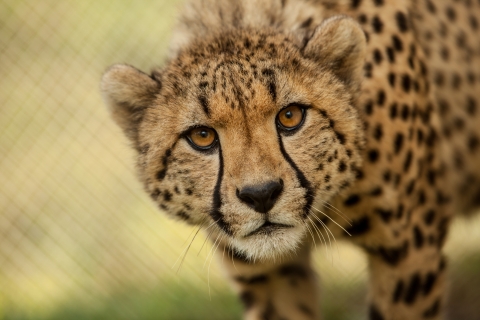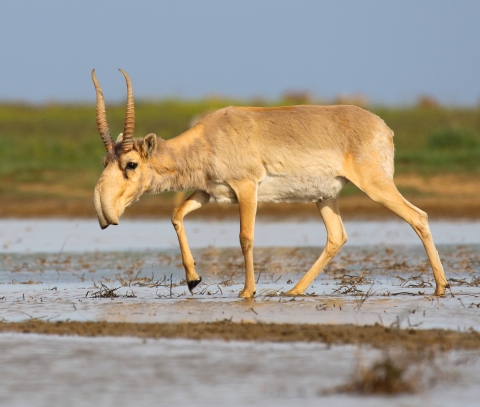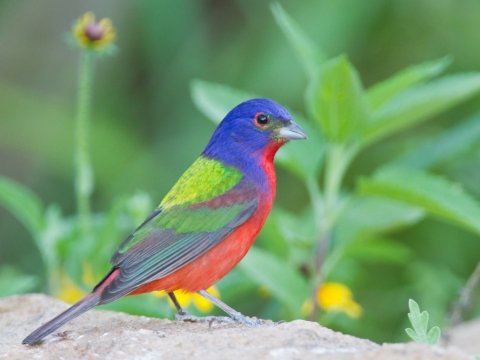Wildlife trafficking is estimated to be a multibillion-dollar business involving the unlawful harvest and trade of animals and plants. The Species Conservation Catalyst Fund is an initiative of the U.S. Fish and Wildlife Service (Service), under the Combating Wildlife Trafficking Program.
The Species Conservation Catalyst Fund aims to reduce wildlife trafficking for selected species by addressing the complex social-ecological systems across a species’ trade chain. It focuses on specific species or species groups that are primarily threatened by illegal trade and supports work that catalyzes significant and sustained change in both demand, transit, and range states. The Fund prioritizes projects that:
build empirical understanding around the trafficking of a species, and
develop, implement, and evaluate strategic activities to reduce such trafficking.
The Species Conservation Catalyst Fund is envisioned as a ‘conservation accelerator’ to launch or grow projects, support opportunities for skill building, and develop networks of researchers and practitioners. New priority species (including plants and animals) will be identified and announced over time. Funding levels and timelines will vary for each species based on conservation need, funding availability, and suitable proposals received. Ultimately, the Fund will invest up to $5 million over 10 years per species to catalyze on-the-ground conservation action and build global awareness to mobilize a longer-term effort that recovers populations of declining, underserved species.
Through this Fund, we aim to spark sustained change that mitigates threats from unsustainable, illegal trade and enable species to thrive in the wild once again.
Current Funding Opportunity
Songbirds
The current funding opportunity focuses on the trade of songbirds native to the Guiana Shield and Caribbean for singing competitions. This sport consists of “racing” male songbirds to assess which bird can sing a specific song the most in a given time. Competitions can involve high financial stakes and the sport plays a significant socio-cultural and economic role. The current singing competition songbird trade appears to be driving local or range-wide declines of potentially 15 wild passerine species, including seed-finches, seedeaters, buntings, and grosbeaks.
One popular songbird racing species is the chestnut-bellied seed-finch, known as the “towa towa” in Guyana or the “bullfinch” in Trinidad and Tobago. This bird is highly desired and valued for singing competitions. Although populations in Guyana appear to be declining, the species is still available in the wild. Demand for the towa towa now surpasses the former top competitor, the large-billed seed finch or “twa-twa,” which is now rare in the wild and is no longer used in singing competitions.
The Species Conservation Catalyst Fund will finance projects to reduce the illegal, unsustainable international trade of songbirds throughout the Guiana Shield and Caribbean and to North America and Europe. Funding will support social and ecological trade research, community-based conservation, sustainable sourcing systems, law enforcement, regulatory efforts, and grant recipient coordination.
Approximately $1.4 million is available for projects lasting 2-5 years. Depending on the demonstrated need of the project, proposals will be awarded $50,000 to $200,000 per year, and up to $1,000,000 over five years. Awards are expected to be made by June 5, 2024.
See the Notice of Funding Opportunity for more details, including priority species, geographic areas, and important considerations. Please also refer to the Supplemental Document, Frequently Asked Questions, and SF-424A Instructions for additional information.
Applications are accepted through GrantSolutions.gov (search for funding opportunity number F24AS00017) or Grants.gov by the deadline of December 8, 2023.
This is the first of several funding opportunities planned over the next few years for songbirds.
Translation in Español, Português, Nederlands and Français.
For more information, please contact:
Jen Miller, PhD (Jennifer_R_Miller@fws.gov), Songbird Program Officer (pronouns: she/her)
Emily Horton, PhD (Emily_Horton@fws.gov), Songbird Social Scientist (pronouns: she/her)
Ongoing Initiatives
Cheetah
The Cheetah initiative supports efforts to address the poaching of cheetah cubs from range countries in the Horn of Africa including Somalia, Ethiopia, and Sudan, and to address the drivers for demand in the Arabian Peninsula. Project partners apply a complimentary multi-pronged approach which includes developing robust cheetah population assessments for the Horn of Africa, strengthening law enforcement collaboration between Africa and the Middle East, and applying robust social science methods to understand the cultural, social and economic drivers for cheetah trafficking in both Africa and on the Arabian Peninsula.
Partners are also working with governments and in-country academic institutions to build scientific capacity for range countries to monitor and study cheetahs in their countries. Cheetah partners currently include African Wildlife Foundation, International Fund for Animal Welfare, Cheetah Conservation Fund, and Colorado State University. Financial assistance awards for cheetah were initiated in 2022.
Please see the current list of financial assistance awards for cheetah here.
For more information, please contact:
Yula Kapetanakos, PhD (Yula_Kapetanakos@fws.gov), Cheetah Program Officer (pronouns: she/her)
Christine Browne, PhD (Christine_Browne@fws.gov), Cheetah Social Scientist (pronouns: she/her)
Saiga Antelope
The Saiga initiative supports efforts to address the poaching and trafficking of saiga antelope across the entire trade chain. Project partners apply strategic approaches to ensure that saiga populations are protected and conserved in their native habitats, saiga horn stockpiles are quantified and managed transparently, and demand for saiga horn is understood and reduced across consumer countries.
Efforts are also underway to ensure that relationships are built amongst partners in saiga conservation, evidence gaps are filled, knowledge and training opportunities are shared, and communications tools (e.g., Saiga News and Saiga Resource Centre) are leveraged. Saiga partners include the Wildlife Conservation Society, TRAFFIC International, the University of Oxford, Fauna and Flora International, and the Saiga Conservation Alliance. Additional partners include the Association for the Conservation of Biodiversity in Kazakhstan and Ekomaktab in Uzbekistan. Financial assistance awards for saiga were initiated in 2022.
Please see the current list of financial assistance awards for saiga here.
For more information, please contact:
Tatiana Hendrix (Tatiana_Hendrix@fws.gov), Saiga Program Officer (pronouns: she/her)
Christine Browne, PhD (Christine_Browne@fws.gov), Saiga Social Scientist (pronouns: she/her)
Songbirds
The Songbird program will support its first round of projects in FY2024 - please see above for information about the current funding opportunity.
More information about the songbird trade:
For a song: Service works with partners to address songbird smuggling
For more information, please contact:
Jen Miller, PhD (Jennifer_R_Miller@fws.gov), Songbird Program Officer (pronouns: she/her)
Emily Horton, PhD (Emily_Horton@fws.gov), Songbird Social Scientist (pronouns: she/her)
